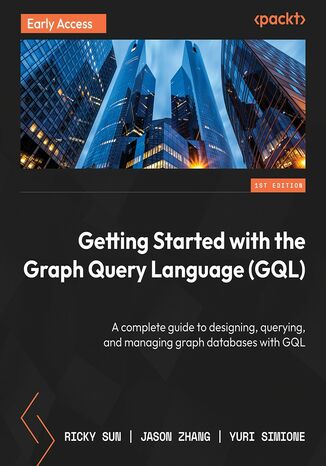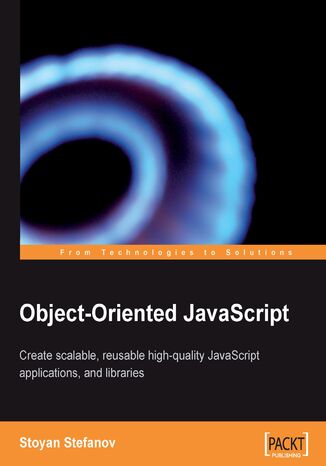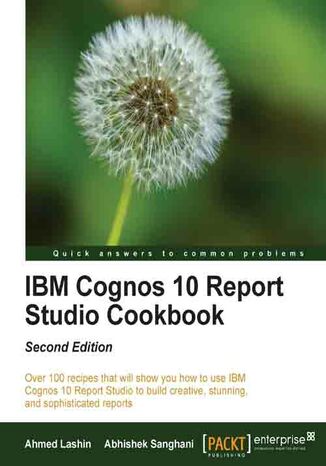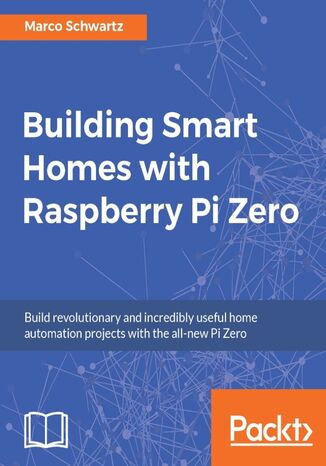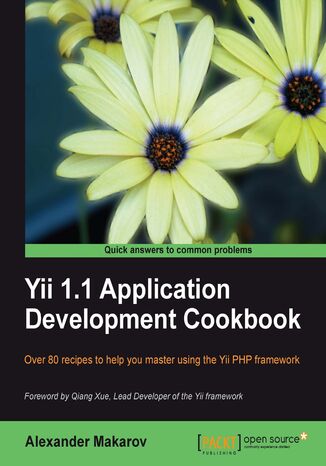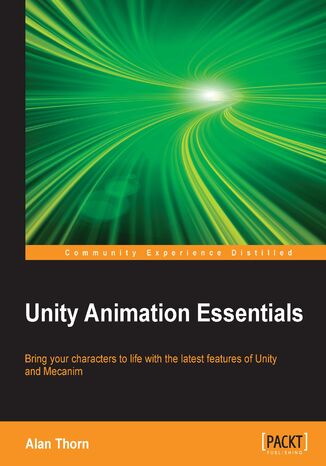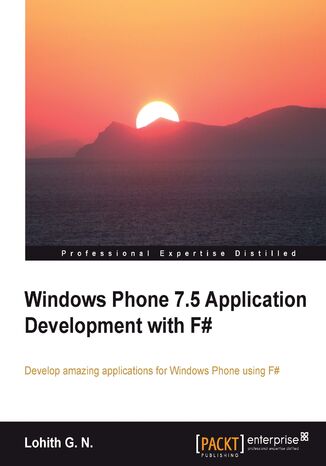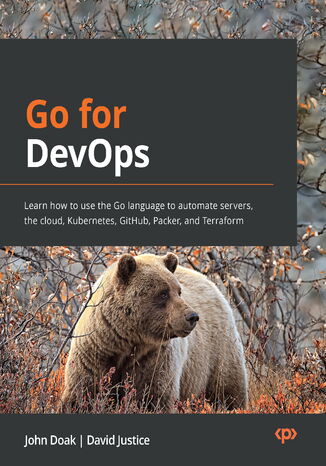Kategorie
Ebooki
-
Biznes i ekonomia
- Bitcoin
- Bizneswoman
- Coaching
- Controlling
- E-biznes
- Ekonomia
- Finanse
- Giełda i inwestycje
- Kompetencje osobiste
- Komputer w biurze
- Komunikacja i negocjacje
- Mała firma
- Marketing
- Motywacja
- Multimedialne szkolenia
- Nieruchomości
- Perswazja i NLP
- Podatki
- Polityka społeczna
- Poradniki
- Prezentacje
- Przywództwo
- Public Relation
- Raporty, analizy
- Sekret
- Social Media
- Sprzedaż
- Start-up
- Twoja kariera
- Zarządzanie
- Zarządzanie projektami
- Zasoby ludzkie (HR)
-
Dla dzieci
-
Dla młodzieży
-
Edukacja
-
Encyklopedie, słowniki
-
E-prasa
- Architektura i wnętrza
- BHP
- Biznes i Ekonomia
- Dom i ogród
- E-Biznes
- Ekonomia i finanse
- Ezoteryka
- Finanse
- Finanse osobiste
- Firma
- Fotografia
- Informatyka
- Kadry i płace
- Kobieca
- Komputery, Excel
- Księgowość
- Kultura i literatura
- Naukowe i akademickie
- Ochrona środowiska
- Opiniotwórcze
- Oświata
- Podatki
- Podróże
- Psychologia
- Religia
- Rolnictwo
- Rynek książki i prasy
- Transport i Spedycja
- Zdrowie i uroda
-
Historia
-
Informatyka
- Aplikacje biurowe
- Bazy danych
- Bioinformatyka
- Biznes IT
- CAD/CAM
- Digital Lifestyle
- DTP
- Elektronika
- Fotografia cyfrowa
- Grafika komputerowa
- Gry
- Hacking
- Hardware
- IT w ekonomii
- Pakiety naukowe
- Podręczniki szkolne
- Podstawy komputera
- Programowanie
- Programowanie mobilne
- Serwery internetowe
- Sieci komputerowe
- Start-up
- Systemy operacyjne
- Sztuczna inteligencja
- Technologia dla dzieci
- Webmasterstwo
-
Inne
-
Języki obce
-
Kultura i sztuka
-
Lektury szkolne
-
Literatura
- Antologie
- Ballada
- Biografie i autobiografie
- Dla dorosłych
- Dramat
- Dzienniki, pamiętniki, listy
- Epos, epopeja
- Esej
- Fantastyka i science-fiction
- Felietony
- Fikcja
- Humor, satyra
- Inne
- Klasyczna
- Kryminał
- Literatura faktu
- Literatura piękna
- Mity i legendy
- Nobliści
- Nowele
- Obyczajowa
- Okultyzm i magia
- Opowiadania
- Pamiętniki
- Podróże
- Poemat
- Poezja
- Polityka
- Popularnonaukowa
- Powieść
- Powieść historyczna
- Proza
- Przygodowa
- Publicystyka
- Reportaż
- Romans i literatura obyczajowa
- Sensacja
- Thriller, Horror
- Wywiady i wspomnienia
-
Nauki przyrodnicze
-
Nauki społeczne
-
Podręczniki szkolne
-
Popularnonaukowe i akademickie
- Archeologia
- Bibliotekoznawstwo
- Filmoznawstwo
- Filologia
- Filologia polska
- Filozofia
- Finanse i bankowość
- Geografia
- Gospodarka
- Handel. Gospodarka światowa
- Historia i archeologia
- Historia sztuki i architektury
- Kulturoznawstwo
- Lingwistyka
- Literaturoznawstwo
- Logistyka
- Matematyka
- Medycyna
- Nauki humanistyczne
- Pedagogika
- Pomoce naukowe
- Popularnonaukowa
- Pozostałe
- Psychologia
- Socjologia
- Teatrologia
- Teologia
- Teorie i nauki ekonomiczne
- Transport i spedycja
- Wychowanie fizyczne
- Zarządzanie i marketing
-
Poradniki
-
Poradniki do gier
-
Poradniki zawodowe i specjalistyczne
-
Prawo
- BHP
- Historia
- Kodeks drogowy. Prawo jazdy
- Nauki prawne
- Ochrona zdrowia
- Ogólne, kompendium wiedzy
- Podręczniki akademickie
- Pozostałe
- Prawo budowlane i lokalowe
- Prawo cywilne
- Prawo finansowe
- Prawo gospodarcze
- Prawo gospodarcze i handlowe
- Prawo karne
- Prawo karne. Przestępstwa karne. Kryminologia
- Prawo międzynarodowe
- Prawo międzynarodowe i zagraniczne
- Prawo ochrony zdrowia
- Prawo oświatowe
- Prawo podatkowe
- Prawo pracy i ubezpieczeń społecznych
- Prawo publiczne, konstytucyjne i administracyjne
- Prawo rodzinne i opiekuńcze
- Prawo rolne
- Prawo socjalne, prawo pracy
- Prawo Unii Europejskiej
- Przemysł
- Rolne i ochrona środowiska
- Słowniki i encyklopedie
- Zamówienia publiczne
- Zarządzanie
-
Przewodniki i podróże
- Afryka
- Albumy
- Ameryka Południowa
- Ameryka Środkowa i Północna
- Australia, Nowa Zelandia, Oceania
- Austria
- Azja
- Bałkany
- Bliski Wschód
- Bułgaria
- Chiny
- Chorwacja
- Czechy
- Dania
- Egipt
- Estonia
- Europa
- Francja
- Góry
- Grecja
- Hiszpania
- Holandia
- Islandia
- Litwa
- Łotwa
- Mapy, Plany miast, Atlasy
- Miniprzewodniki
- Niemcy
- Norwegia
- Podróże aktywne
- Polska
- Portugalia
- Pozostałe
- Przewodniki po hotelach i restauracjach
- Rosja
- Rumunia
- Słowacja
- Słowenia
- Szwajcaria
- Szwecja
- Świat
- Turcja
- Ukraina
- Węgry
- Wielka Brytania
- Włochy
-
Psychologia
- Filozofie życiowe
- Kompetencje psychospołeczne
- Komunikacja międzyludzka
- Mindfulness
- Ogólne
- Perswazja i NLP
- Psychologia akademicka
- Psychologia duszy i umysłu
- Psychologia pracy
- Relacje i związki
- Rodzicielstwo i psychologia dziecka
- Rozwiązywanie problemów
- Rozwój intelektualny
- Sekret
- Seksualność
- Uwodzenie
- Wygląd i wizerunek
- Życiowe filozofie
-
Religia
-
Sport, fitness, diety
-
Technika i mechanika
Audiobooki
-
Biznes i ekonomia
- Bitcoin
- Bizneswoman
- Coaching
- Controlling
- E-biznes
- Ekonomia
- Finanse
- Giełda i inwestycje
- Kompetencje osobiste
- Komunikacja i negocjacje
- Mała firma
- Marketing
- Motywacja
- Nieruchomości
- Perswazja i NLP
- Podatki
- Polityka społeczna
- Poradniki
- Prezentacje
- Przywództwo
- Public Relation
- Sekret
- Social Media
- Sprzedaż
- Start-up
- Twoja kariera
- Zarządzanie
- Zarządzanie projektami
- Zasoby ludzkie (HR)
-
Dla dzieci
-
Dla młodzieży
-
Edukacja
-
Encyklopedie, słowniki
-
E-prasa
-
Historia
-
Informatyka
-
Inne
-
Języki obce
-
Kultura i sztuka
-
Lektury szkolne
-
Literatura
- Antologie
- Ballada
- Biografie i autobiografie
- Dla dorosłych
- Dramat
- Dzienniki, pamiętniki, listy
- Epos, epopeja
- Esej
- Fantastyka i science-fiction
- Felietony
- Fikcja
- Humor, satyra
- Inne
- Klasyczna
- Kryminał
- Literatura faktu
- Literatura piękna
- Mity i legendy
- Nobliści
- Nowele
- Obyczajowa
- Okultyzm i magia
- Opowiadania
- Pamiętniki
- Podróże
- Poezja
- Polityka
- Popularnonaukowa
- Powieść
- Powieść historyczna
- Proza
- Przygodowa
- Publicystyka
- Reportaż
- Romans i literatura obyczajowa
- Sensacja
- Thriller, Horror
- Wywiady i wspomnienia
-
Nauki przyrodnicze
-
Nauki społeczne
-
Popularnonaukowe i akademickie
-
Poradniki
-
Poradniki zawodowe i specjalistyczne
-
Prawo
-
Przewodniki i podróże
-
Psychologia
- Filozofie życiowe
- Komunikacja międzyludzka
- Mindfulness
- Ogólne
- Perswazja i NLP
- Psychologia akademicka
- Psychologia duszy i umysłu
- Psychologia pracy
- Relacje i związki
- Rodzicielstwo i psychologia dziecka
- Rozwiązywanie problemów
- Rozwój intelektualny
- Sekret
- Seksualność
- Uwodzenie
- Wygląd i wizerunek
- Życiowe filozofie
-
Religia
-
Sport, fitness, diety
-
Technika i mechanika
Kursy video
-
Bazy danych
-
Big Data
-
Biznes, ekonomia i marketing
-
Cyberbezpieczeństwo
-
Data Science
-
DevOps
-
Dla dzieci
-
Elektronika
-
Grafika/Wideo/CAX
-
Gry
-
Microsoft Office
-
Narzędzia programistyczne
-
Programowanie
-
Rozwój osobisty
-
Sieci komputerowe
-
Systemy operacyjne
-
Testowanie oprogramowania
-
Urządzenia mobilne
-
UX/UI
-
Web development
-
Zarządzanie
Podcasty
Ricky Sun, Jason Zhang, Yuri Simione
Graph Query Language is becoming the go-to standard for graph databases, especially with its support for interconnected analytics and GenAI capabilities. This book comes from a team of industry veterans who know exactly how to break down the fundamental GQL concepts, graph terms, definitions, catalog systems, and everything that matters in actual work.You’ll get to grips with graph data types, value expressions, graph matching patterns, and modifying statements through practical GQL examples. With access to the GQL Playground via Ultipa Graph, you’ll get hands-on experience querying and manipulating graph data. Once you've got the basics down, you’ll tackle advanced GQL topics such as path modes, complex path matching patterns, shortest path queries, composite statements, session and transaction commands, and procedures. You’ll also learn to create extensions and understand the design of graph databases to solve industry issues. The authors cover techniques like property graphs to help you optimize your graph queries and offer insights into the future of GQL and graph technology.By the end of this book, you’ll confidently query and update graph data, run graph algorithms, and create visualizations. Plus, you’ll apply your learnings to a real-world use case of money flow analysis for assessing bank client behaviors and detecting transaction risks.
Abhishek Sanghani, Ahmed Lashin, Ahmed S Lashin
IBM Cognos Report Studio is widely used for creating and managing business reports in medium to large companies. It is simple enough for any business analyst, power user, or developer to pick up and start developing basic reports. However, this book is designed to take the reader beyond the basics and into the world of creating more sophisticated, functional business reports.IBM Cognos 10 Report Studio Cookbook, Second Edition helps you understand and use all the features provided by Report Studio to generate impressive deliverables. It will take you from being a beginner to a professional report author. It bridges the gap between basic training provided by manuals or trainers and the practical techniques learned over years of practice.Written in a recipe style, this book offers step-by-step instructions for IBM Cognos Report Studio users to author reports effectively, allowing a reader to dip in and out of the chapters as they desire.You will see a new fictional business case in each recipe that will relate to a real-life problem and then you will learn how to crack it in Report Studio.This book covers all the basic and advanced features of Report Authoring. It introduces the fundamental features useful across any level of reporting. Then it ascends to advanced techniques and tricks to overcome Studio limitations. Develop excellent reports using dimensional data sources by following best practices that development work requires in Report Studio. You will also learn about editing the report outside the Studio by directly editing the XML specifications. You will discover how to build and use Cognos Active Reports, a new addition in IBM Cognos 10.Provide richness to the user interface by adding JavaScript and HTML tags and using the different chart types introduced in IBM Cognos 10. The main focus is on the practical use of various powerful features that Report Studio has to offer to suit your business requirements.Learn numerous techniques and hacks that will allow you to make the best out of your IBM Cognos 10 Report Studio.
The release of the Raspberry Pi Zero has completely amazed the tech community. With the price, form factor, and being high on utility—the Raspberry Pi Zero is the perfect companion to support home automation projects and makes IoT even more accessible.With this book, you will be able to create and program home automation projects using the Raspberry Pi Zero board. The book will teach you how to build a thermostat that will automatically regulate the temperature in your home. Another important topic in home automation is controlling electrical appliances, and you will learn how to control LED Lights, lamps, and other electrical applications. Moving on, we will build a smart energy meter that can measure the power of the appliance, and you’ll learn how to switch it on and off. You’ll also see how to build simple security system, composed of alarms, a security camera, and motion detectors. At the end, you will integrate everything what you learned so far into a more complex project to automate the key aspects of your home.By the end, you will have deepened your knowledge of the Raspberry Pi Zero, and will know how to build autonomous home automation projects.
Alexander Makarov, Qiang Xue (Project)
When Alex told me he was about to write a Yii cookbook about a year ago, I was wondering how original it would be, considering the fact that there was already an online user-contributed cookbook (aka. Yii wiki). It turned out Alex produced a book that is not only full of wisdom about how to use Yii effectively, but also presented in such a systematic way that it can be taken as an essential companion book to the definitive guide to Yii. In fact, Alex has successfully intrigued the interest of every member in the Yii developer team when he asked for review and comments on his newly finished book chapters.As the founder and the lead developer of the Yii framework, I feel this book is a must-read for every Yii programmer. While this book does not describe directly the rules set by Yii, it shows how to program with Yii from a practical perspective. People who are driven by tight project schedules will find this book very handy as it gives ready-to-use solutions to many problems they may face in their projects; people who are already familiar with Yii will also find this book very informative as most problem solutions given in the book can be considered as officially recommended because they have undergone thorough review of every Yii developer team member. Alex, through this book and his active participation in the Yii project, proved himself to be a great programmer as well as a good writer.Qiang XueLead developer of the Yii frameworkYii framework is a rapidly growing PHP5 MVC framework often referred to as Rails for PHP. It has become a solid base for many exciting web applications such as Stay.com and Russia Today's meetfriends.rt.com and can be a good base for your developments. Yii is an object-oriented, high-performance, component-based PHP web application framework. Yii is pronounced as Yee and is an acronym for Yes It Is!.Familiar with Yii and want to exploit it to its full potential, but do not know how to go about it? Yii 1.1 Application Development Cookbook will show you how to use Yii efficiently. You will learn about implementing shortcuts using core features, creating your own reusable code base, using test-driven development, and many more topics that will escalate your knowledge in no time at all!Yii 1.1 Application Development Cookbook will help you learn more about Yii framework and application development practices in general with demonstrations of shortcuts and information about dangerous things you should not do.Grouped in 13 chapters, the recipes will assist you to write your applications exploiting Yii core functionality to its full potential. The chapters are generally independent of each other and you can start reading from the chapter you need most, whether it is AJAX and jQuery, Database, Active Record and Model Tricks or Extending Yii. The most interesting topics include Yii application deployment, a guide to writing your own extensions, advanced error handling, debugging and logging, application security, and performance tuning.Yii 1.1 Application Development Cookbook will help you utilize Yii functionalities completely and efficiently.
Windows Phone is an OS which is also a platform in itself and provides an opportunity for application developers to build their apps and sell them on the Windows Phone Marketplace. Windows Phone is slowly catching up in the race with iOS and Android. Although well suited for scientific and mathematical calculations, the Windows Phone Platform provides an opportunity to program in F#. Windows Phone 7.5 Application Development with F# focuses on making the user aware of Windows Phone App Development with the F# programming language in as short a time as possible. The book teaches you about the development environment, helps you understand the project structure, understand the controls, and ends with some of the cool features of the platform like sensors, launchers, and choosers. The book starts off with enabling the user with the right tools required to start developing. It focuses on getting the IDE ready, and project and item templates. By the end of the book the user will be familiarized with the different aspects of the platform itself. The transition from one chapter to another is short and focused so that you can get to the meat of the topic quickly.
Go is the go-to language for DevOps libraries and services, and without it, achieving fast and safe automation is a challenge. With the help of Go for DevOps, you'll learn how to deliver services with ease and safety, becoming a better DevOps engineer in the process.Some of the key things this book will teach you are how to write Go software to automate configuration management, update remote machines, author custom automation in GitHub Actions, and interact with Kubernetes. As you advance through the chapters, you'll explore how to automate the cloud using software development kits (SDKs), extend HashiCorp's Terraform and Packer using Go, develop your own DevOps services with gRPC and REST, design system agents, and build robust workflow systems.By the end of this Go for DevOps book, you'll understand how to apply development principles to automate operations and provide operational insights using Go, which will allow you to react quickly to resolve system failures before your customers realize something has gone wrong.

